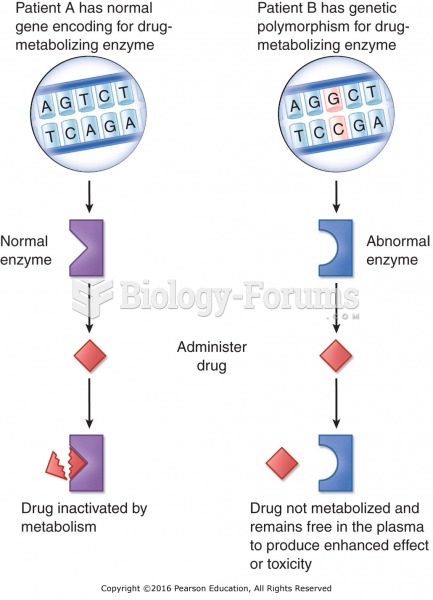|
|
|
Ether was used widely for surgeries but became less popular because of its flammability and its tendency to cause vomiting. In England, it was quickly replaced by chloroform, but this agent caused many deaths and lost popularity.
Thyroid conditions may make getting pregnant impossible.
If all the neurons in the human body were lined up, they would stretch more than 600 miles.
This year, an estimated 1.4 million Americans will have a new or recurrent heart attack.
Hip fractures are the most serious consequences of osteoporosis. The incidence of hip fractures increases with each decade among patients in their 60s to patients in their 90s for both women and men of all populations. Men and women older than 80 years of age show the highest incidence of hip fractures.







